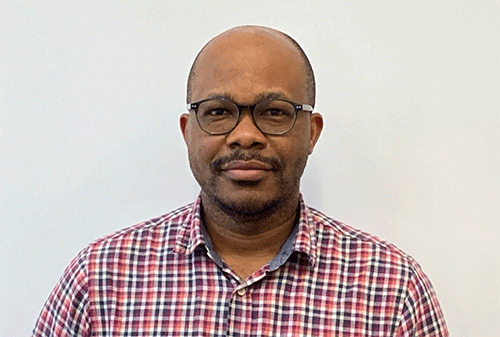Uchendu Eugene Chigbu
Cockroaches are little brave things. They invade the most intimate spaces in our homes and turn them into their very own. They represent poor sanitation wherever they occupy – even if that environment looks clean.
A cockroach is not a metaphor for dirt. It is a crawling embodiment of dirt, filths, germs and diseases.
There is an extreme infestation of these creatures in buildings within and around Windhoek’s Central Business District (CBD).
Confronting cockroaches as part of urban sanitation management is essential because people live in the CBD. If you are one of those suburb-dwellers, wondering why anyone should live within the CBD, there are many advantages of living in and around the CBD.
Social life is very active in the CBD. Life in the CBD shapes what many call “city life”.
Living in CBD gives one plenty of opportunities to socialise.
The CBD is the central location of all activities in the city.
It is a place where every business, amenities and service are interconnected.
That makes it easy for people to access them always (e.g., shops, entertainment, transportation, administrative offices, spas, recreation, open spaces, health and education facilities).
Back to cockroaches: there are about 4 000 species of cockroaches in the world.
Almost all of them play positive roles in balancing the state of nature by helping in recycling dead plant material outside our homes.
However, about 30 of these species are pests.
These few species – the ones that infest our buildings (homes and businesses) – are what I am writing about.
They give all other cockroaches a bad name.
While researching for this article, I learned that the four commonest cockroaches around us are the American, Oriental, Brown-banded and German cockroaches.
American cockroaches are reddish-brown, with a yellowish pattern on the back of their heads, while the Brown-banded cockroaches are brown with recognisable banding across their wings.
In contrast, the German cockroaches have light brown or tan bodies with two dark stripes, while the Oriental cockroaches are shiny black.
If you are a victim of cockroach invasion, I will leave it up to you to identify those that invade your space.
Here comes the problem with Windhoek CBD.
I have sampled (randomly) buildings and individuals from more than 20 locations within the CBD.
They confirmed various levels of cockroach invasions (calm, mild and aggressive types). I have also interviewed some caretakers who confirmed that cockroaches are a big problem in their apartment buildings.
Many of these caretakers stated that they had been in this roach fight for the longest. In the words of one of them, “these cockroaches have built their villages in the city sewers directly connected to our buildings. You fight them, they go home to the sewers and come back again”.
Meaning: if you raid them with insecticides, some die, and others go home to their underground villages and return when it is safe.
City-wide pest control is needed in Windhoek CBD to locate the underground cockroach villages and eradicate them.
Otherwise, all the efforts made indoors will continue to be in vain.
Property managers (and the City of Windhoek administrators) should collaborate in tackling cockroaches (and other pests) infestations.
This is one way to justify the rents paid to landlords/landladies and the health-related levies paid to the authorities.
City of Windhoek has a responsibility
The sewer system in Windhoek is a network of underground pipes.
They are drains that remove wastewater from toilets and kitchens and handle rainwater runoff.
Pests (especially cockroaches) that live in underground sewer systems stay there for their security.
All year round, sewers offer them a secure home, adaptable temperatures, favourable humidity, food sources and protection against disturbances. This means that they reproduce year-round.
The services of private pest control experts are restricted to in-house management. It is complicated to engage in sewer pest control because of regulatory complications. Sewer ownership is in the hands of the government or city authorities. However, with sewers harbouring the “village of cockroaches”, they never go away no matter how hard they are fought in-house.
I am aware that the City of Windhoek is doing its best to make life liveable for residents. I also think that more can still be done. The city of Windhoek has a responsibility to save residents from this menace.
The city authority must have a legal right to control pests or give pest control companies (including Body Corporates) permission to control pests in the city sewers. Cockroaches do not have a right to the city more than human beings.
Tenants and owners might have been doing something about this indoors, but it is not enough. The problem has its origin outdoor in the sewers.
I believe that urban sanitation management cannot be limited to street-top cleaning alone. I also understand that a focus on only one side of urban sanitation will not be sustainable since several other sanitary demands require the attention of the City of Windhoek and other stakeholders.
Therefore, I call on the authorities to engage in an urban sanitation management approach that embraces dealing with sewers (where the cockroaches live).
Now that the cold temperatures are here, the cockroaches are home in the sewers. This is the best time to clean them out for good.
* Uchendu Eugene Chigbu is an Associate Professor (Land Administration) in the Department of Land and Property Sciences at the Namibia University of Science and Technology (NUST). The views expressed in this article are entirely his, and not that of NUST.


